Disaster Preparedness
See the following -
A Testament to Telework’s Progress
Federal agencies are open on Tuesday, after a major storm in the D.C. area on Friday that has caused power outages and transportation problems for residents. And the fact that federal agencies are open, with employees having the option to take unscheduled leave or telework, pays tribute to the fact that telework has come a long way in the past couple of years. Read More »
- Login to post comments
2019 International Conference on Disaster Medicine and Hurricane Resiliency Draws Hundreds
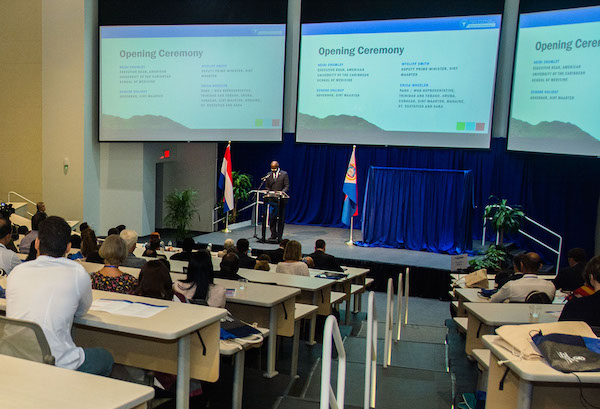 More than 280 healthcare professionals, emergency preparedness experts, and government leaders gathered on campus March 8-11 with the goal of uniting their collective experience and expertise to increase their communities’ ability to manage hurricanes and other disasters. Attendees represented 12 countries, including 9 Caribbean islands, and a multitude of backgrounds in disaster preparedness and response, including disaster medicine and veterinary medicine, nursing, hospital administration, mental health, telehealth, EMS and first responders, disaster recovery and humanitarian assistance, medical education, and more.
More than 280 healthcare professionals, emergency preparedness experts, and government leaders gathered on campus March 8-11 with the goal of uniting their collective experience and expertise to increase their communities’ ability to manage hurricanes and other disasters. Attendees represented 12 countries, including 9 Caribbean islands, and a multitude of backgrounds in disaster preparedness and response, including disaster medicine and veterinary medicine, nursing, hospital administration, mental health, telehealth, EMS and first responders, disaster recovery and humanitarian assistance, medical education, and more.
- Login to post comments
3 Reasons Why the US is Vulnerable to Big Disasters
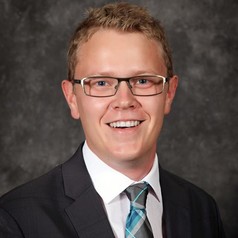 During the 2017 disaster season, three severe hurricanes devastated large parts of the U.S. The quick succession of major disasters made it obvious that such large-scale emergencies can be a strain, even in one of the world’s richest countries. As a complex emergency researcher, I investigate why some countries can better withstand and respond to disasters. The factors are many and diverse, but three major ones stand out because they are within the grasp of the federal and local governments: where and how cities grow; how easily households can access critical services during disaster; and the reliability of the supply chains for critical goods. For all three of these factors, the U.S. is heading in the wrong direction. In many ways, Americans are becoming more vulnerable by the day.
During the 2017 disaster season, three severe hurricanes devastated large parts of the U.S. The quick succession of major disasters made it obvious that such large-scale emergencies can be a strain, even in one of the world’s richest countries. As a complex emergency researcher, I investigate why some countries can better withstand and respond to disasters. The factors are many and diverse, but three major ones stand out because they are within the grasp of the federal and local governments: where and how cities grow; how easily households can access critical services during disaster; and the reliability of the supply chains for critical goods. For all three of these factors, the U.S. is heading in the wrong direction. In many ways, Americans are becoming more vulnerable by the day.
- Login to post comments
Americans Focus On Responding To Earthquake Damage, Not Preventing It, Because They Are Unaware Of Their Risk
 On July 4 and 5, two major earthquakes, followed by several thousand smaller ones, struck Southern California. Their size and the damage they caused captured attention around the country. What tends to get much less notice from the public is what can be done to prevent catastrophic damage from big quakes. Had the epicenter of these latest large California earthquakes been closer to downtown Los Angeles, tens of thousands of apartment buildings could have been damaged or collapsed. Consequently, structural engineers are calling on legislators to prepare for and prevent earthquake damage by crafting new and improved building codes...
On July 4 and 5, two major earthquakes, followed by several thousand smaller ones, struck Southern California. Their size and the damage they caused captured attention around the country. What tends to get much less notice from the public is what can be done to prevent catastrophic damage from big quakes. Had the epicenter of these latest large California earthquakes been closer to downtown Los Angeles, tens of thousands of apartment buildings could have been damaged or collapsed. Consequently, structural engineers are calling on legislators to prepare for and prevent earthquake damage by crafting new and improved building codes...
- Login to post comments
At CES, Humetrix Shows its e-Prescribed Digital Health Technology to Transform Healthcare in the Hands of Consumers
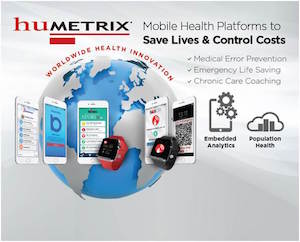 At CES, Humetrix will demo its suite of mobile health platforms that put consumers around the world in control of their own care. By offering actionable mobile applications that address the complexity of medical care, delivered in multiple settings, and which needs to be personalized, Humetrix places decision-making tools in consumers’ own hands and on their own devices, where they can use it.
At CES, Humetrix will demo its suite of mobile health platforms that put consumers around the world in control of their own care. By offering actionable mobile applications that address the complexity of medical care, delivered in multiple settings, and which needs to be personalized, Humetrix places decision-making tools in consumers’ own hands and on their own devices, where they can use it.
- Login to post comments
Auditors Fault Pentagon Sorting of Biggest Bioweapon Threats
Auditors say the Defense Department is not following its own procedures for guarding against "potentially catastrophic" biological strikes...
- Login to post comments
Caribbean Center for Disaster Medicine (CCDM)
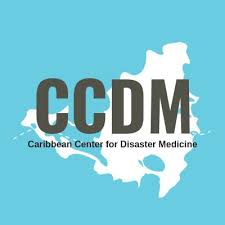 The Caribbean Center for Disaster Medicine (CCDM) is the result of a collaboration between American University of the Caribbean School of Medicine, Harvard Medical Faculty Physicians of Beth Israel Deaconess Medical Center, and the government and community partners in St. Maarten and the Caribbean region. The CCDM is being created as a center of excellence to foster collaboration among professionals responsible for healthcare delivery, disaster preparedness, emergency response, and medical education.
The Caribbean Center for Disaster Medicine (CCDM) is the result of a collaboration between American University of the Caribbean School of Medicine, Harvard Medical Faculty Physicians of Beth Israel Deaconess Medical Center, and the government and community partners in St. Maarten and the Caribbean region. The CCDM is being created as a center of excellence to foster collaboration among professionals responsible for healthcare delivery, disaster preparedness, emergency response, and medical education.
- Login to post comments
Community Health Network in Houston Leverages Open Source Tech to Help Victims of Hurricane Harvey
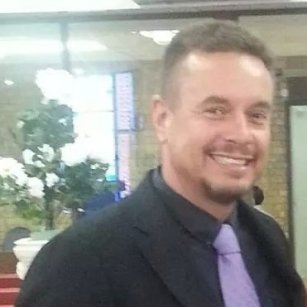 Undaunted by the devastation caused by Hurricane Harvey in Houston, the Stephen F. Austin Community Health Network (SFA) responded to the crisis by leveraging open source technology to reach out to their patients and victims of the hurricane in areas of Texas that are virtually inaccessible. The Health Network, a Federally Qualified Health Center (FQHC) covering Brazoria County, is one of the areas hardest hit by Hurricane Harvey and currently recovering. Using an advanced cloud-based version of the OpenEMR software, the SFA Community Health Network has been able to treat patients in clinics physically unreachable by their medical providers.
Undaunted by the devastation caused by Hurricane Harvey in Houston, the Stephen F. Austin Community Health Network (SFA) responded to the crisis by leveraging open source technology to reach out to their patients and victims of the hurricane in areas of Texas that are virtually inaccessible. The Health Network, a Federally Qualified Health Center (FQHC) covering Brazoria County, is one of the areas hardest hit by Hurricane Harvey and currently recovering. Using an advanced cloud-based version of the OpenEMR software, the SFA Community Health Network has been able to treat patients in clinics physically unreachable by their medical providers.
- The Future Is Open
- Login to post comments
Covenant Park Integrated Initiatives, Inc.
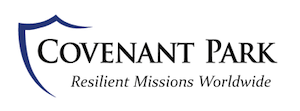 Founded in 2007, Covenant Park builds large, integrated, complex programs for disaster preparedness and continuity. They provide their capabilities at the highest level of all three branches of the US government and for highly critical, global commercial operations. Covenant Park believes the complexity and interconnectedness of today's world requires an unprecedented level of coordination, analysis and communication to effectively identify and reduce risk. Read More »
Founded in 2007, Covenant Park builds large, integrated, complex programs for disaster preparedness and continuity. They provide their capabilities at the highest level of all three branches of the US government and for highly critical, global commercial operations. Covenant Park believes the complexity and interconnectedness of today's world requires an unprecedented level of coordination, analysis and communication to effectively identify and reduce risk. Read More »
- Login to post comments
Fax Technologies Take Center Stage at HIMSS19 Exhibition
 One of the most surprising developments at HIMSS19 is the large number of companies exhibiting their Fax Technologies. Long derided by reporters, health IT consultants, and EHR vendors, fax technologies have been growing in leaps and bounds while EHRs continue to fail to deliver interoperability. Just a couple of years ago faxes were used in around 75% of medical records exchanges. Latest numbers indicate that faxes are now used to exchange more than 85% of medical records. Most people would react in horror to such figures. How could physicians and medical personnel rely on antiquated paper technologies like faxes? The real story to be found on the exhibit floor at the HIMSS 2019 conference is that what we are seeing is a rapid transition to digital fax technologies and platforms. And this transition is taking place because physicians and medical staff have figured out they work!
One of the most surprising developments at HIMSS19 is the large number of companies exhibiting their Fax Technologies. Long derided by reporters, health IT consultants, and EHR vendors, fax technologies have been growing in leaps and bounds while EHRs continue to fail to deliver interoperability. Just a couple of years ago faxes were used in around 75% of medical records exchanges. Latest numbers indicate that faxes are now used to exchange more than 85% of medical records. Most people would react in horror to such figures. How could physicians and medical personnel rely on antiquated paper technologies like faxes? The real story to be found on the exhibit floor at the HIMSS 2019 conference is that what we are seeing is a rapid transition to digital fax technologies and platforms. And this transition is taking place because physicians and medical staff have figured out they work!
- The Future Is Open
- Login to post comments
FEMA Was Overwhelmed by Hurricanes and Wildfires in 2017, GAO Says
 The back-to-back devastation of hurricanes Harvey, Irma and Maria, followed by catastrophic wildfires in California, overwhelmed federal disaster responders in 2017, according to a government report released Tuesday. The unprecedented sequence of storms and fires forced Federal Emergency Management Agency staff to jump from one disaster to another and in some cases use uncertified workers to fill key roles. “They were 30% understaffed when Harvey hit,” said Chris Currie, director of emergency management issues at the Government Accountability Office, which wrote Tuesday’s report. “By the time Maria hit Puerto Rico, they were down to the bottom of the barrel.”
The back-to-back devastation of hurricanes Harvey, Irma and Maria, followed by catastrophic wildfires in California, overwhelmed federal disaster responders in 2017, according to a government report released Tuesday. The unprecedented sequence of storms and fires forced Federal Emergency Management Agency staff to jump from one disaster to another and in some cases use uncertified workers to fill key roles. “They were 30% understaffed when Harvey hit,” said Chris Currie, director of emergency management issues at the Government Accountability Office, which wrote Tuesday’s report. “By the time Maria hit Puerto Rico, they were down to the bottom of the barrel.”
- Login to post comments
GSMA Announces Launch of Disaster Response Innovation Fund
 The GSMA today announced the launch of its Disaster Response Innovation Fund to spur development of mobile technology solutions to assist and empower people and communities affected by humanitarian emergencies, and to strengthen disaster prevention, preparedness and response. The Fund is backed by the UK Department for International Development (DFID) and supported by the GSMA and its members...
The GSMA today announced the launch of its Disaster Response Innovation Fund to spur development of mobile technology solutions to assist and empower people and communities affected by humanitarian emergencies, and to strengthen disaster prevention, preparedness and response. The Fund is backed by the UK Department for International Development (DFID) and supported by the GSMA and its members...
- Login to post comments
GWU Milken Institute School of Public Health releases report on deaths due to Hurricane Maria in Puerto Rico and outlines steps to protect the most vulnerable communities from disasters
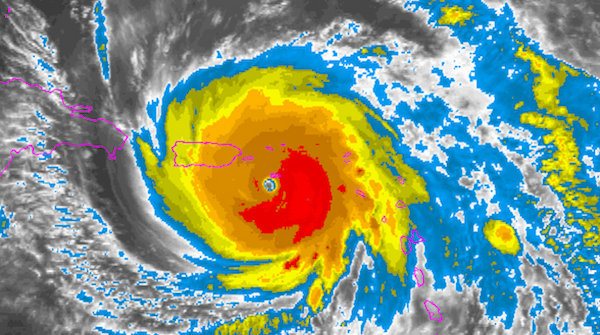 In an independent report published today, researchers at the George Washington University Milken Institute School of Public Health (GW Milken Institute SPH) estimated there were 2,975 excess deaths in Puerto Rico due to Hurricane Maria from September 2017 through the end of February 2018. The researchers also identified gaps in the death certification and public communication processes and went on to make recommendations that will help prepare Puerto Rico for future hurricanes and other natural disasters.
In an independent report published today, researchers at the George Washington University Milken Institute School of Public Health (GW Milken Institute SPH) estimated there were 2,975 excess deaths in Puerto Rico due to Hurricane Maria from September 2017 through the end of February 2018. The researchers also identified gaps in the death certification and public communication processes and went on to make recommendations that will help prepare Puerto Rico for future hurricanes and other natural disasters.
- Login to post comments
HCA Healthcare Can't Hide From Hurricanes With 45 Hospitals In Florida, So It Preps Like It's The Apocalypse
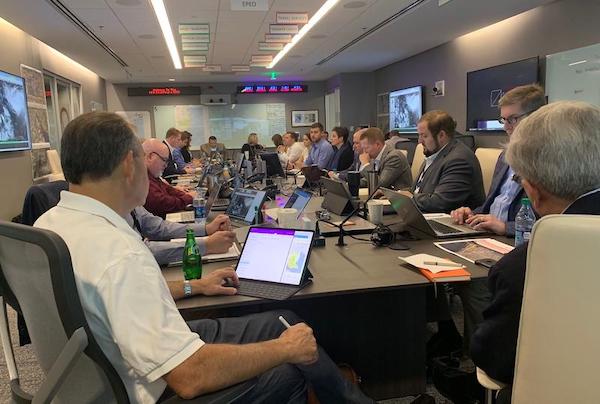 As Hurricane Dorian threatened the Florida coast, top officials at HCA spent Labor Day weekend wringing their hands, pulling all-nighters in a Nashville command center. It almost didn't matter where the storm hits; HCA Healthcare's hospitals were going to be affected. With dozens of hospitals on Florida's east and west coasts, the for-profit hospital chain is exposed every time a hurricane threatens the Sunshine State. Late last week, the nation's largest hospital company granted WPLN rare access to observe storm preparations as Dorian bore down on the Florida coast. The mood was serious. Chatter was limited. The only sound competing with speakers was the hum of fingers on laptops taking furious notes.
As Hurricane Dorian threatened the Florida coast, top officials at HCA spent Labor Day weekend wringing their hands, pulling all-nighters in a Nashville command center. It almost didn't matter where the storm hits; HCA Healthcare's hospitals were going to be affected. With dozens of hospitals on Florida's east and west coasts, the for-profit hospital chain is exposed every time a hurricane threatens the Sunshine State. Late last week, the nation's largest hospital company granted WPLN rare access to observe storm preparations as Dorian bore down on the Florida coast. The mood was serious. Chatter was limited. The only sound competing with speakers was the hum of fingers on laptops taking furious notes.
- Login to post comments
HIMSS18: Key Exhibitor Booths for Open Solutions, Collaboration, and Interoperability
 The annual gargantuan HIMSS conference is back at Las Vegas with over 40,000 participants, over a thousand exhibitors, and more than 600 presentations. As we saw last year in Orlando, more than half of the conference presentations are focused on applications based on open source such as FHIR and Blockchain, and a great emphasis on open solutions for interoperability. With so many presentations and exhibits, it is impossible to provide a full overview. Below are a few of some of the most interesting exhibits of open solutions this year.
The annual gargantuan HIMSS conference is back at Las Vegas with over 40,000 participants, over a thousand exhibitors, and more than 600 presentations. As we saw last year in Orlando, more than half of the conference presentations are focused on applications based on open source such as FHIR and Blockchain, and a great emphasis on open solutions for interoperability. With so many presentations and exhibits, it is impossible to provide a full overview. Below are a few of some of the most interesting exhibits of open solutions this year.
- The Future Is Open
- Login to post comments